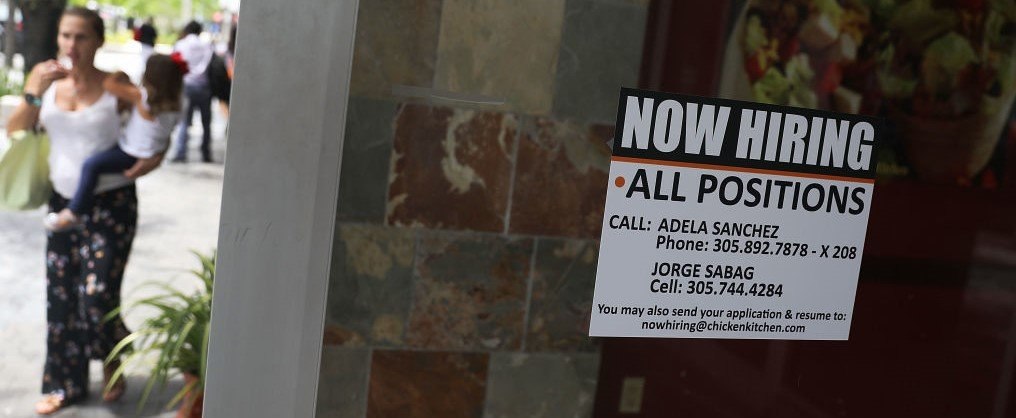While the economic effects of the COVID-19 pandemic are disproportionately hurting young Americans, an Economist/YouGov Poll suggests older Americans are the ones more likely to be worried they would have to take a pay cut if they lost their job.
About one in five (21%) of adult Americans under 30 years old say it would be very hard to find a new job that pays as much as they’re making now and they’d probably have to take a pay cut, compared to 27 percent of the nation as a whole.
Climbing the age ladder the research shows that any perceived difficulty in finding a similar-paying job increases to 23 percent among those aged 30-44, 30 percent among those aged 45-64 and 37 percent among those over 65 years old.
Two in five Americans (41) say the job hunt would be “somewhat hard,” and 22 percent say it would not be very hard.
Chances are young people are already in low-wage or entry level positions to begin with, so for them, finding another similar paying job may be easier than those in older age brackets.
New jobs are also likely to be low-paying. According to the United States Bureau of Labor Statistics, low-wage industries – those catastrophically impacted by the economic shut down, such as hospitality and retail – saw the highest monthly increase in employment numbers in July.
The data also suggests Democrats (33%) are more likely than Republicans (19%) to say they’d have to take a pay cut if they lost their job. Independents cut down the middle at 26 percent.
Meanwhile, jobs and the economy is the most important issue for those under 30 (25% say so), more than health care, climate change and civil rights and liberties. That stands in contrast to every other age group, for which health care is the top priority.
That's no big surprise, as they are the age group most likely to be worse off financially than they were a year ago, but they’re also less likely to be in need of medical care.
Job-loss worry lingers
This week, 40 percent of working Americans are worried about losing their job, a figure which has fluctuated between 40 percent and 50 percent since May, further evidence of a fragile economy.
Economist/YouGov Poll data also shows roughly a third (32%) of Americans think there will be more jobs in six months, while about a quarter (24%) think they’ll be fewer.
See the toplines and crosstabs from this week’s Economist/YouGov Poll
Methodology: The Economist survey was conducted by YouGov using a nationally representative sample of 1,500 U.S. adult citizens interviewed online between August 23 - 25, 2020. This sample was weighted according to gender, age, race, and education based on the American Community Survey, conducted by the US Bureau of the Census, as well as 2016 Presidential vote, registration status, geographic region, and news interest. Respondents were selected from YouGov’s opt-in panel to be representative of all US citizens. The margin of error is approximately 3.6% for the overall sample.
Image: Getty










